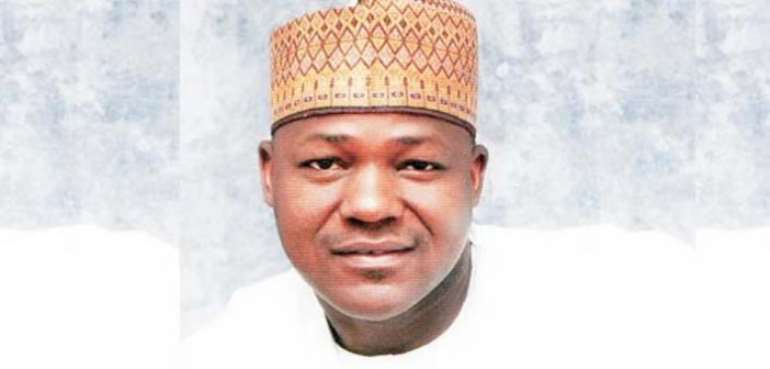NASS: Why I didn't read Oyegun's letter – Speaker Dogara

Speaker of the House of Representatives, Hon. Yakubu Dogara, yesterday explained his refusal to read the letter from the National Chairman of the All Progressive Congress (APC), Chief John Odigie-Oyegun, nominating principal officers on the floor of the House last week.
He made this explanation at a meeting with some former members of the House who visited him at the weekend, that he decided against reading the letter because of a pending court case.
The former members were led by Hon. Dauda Bundot and Hon. Jonathan Asake.
The APC members in the House last week threw decency to the dogs as they exchanged blows over principal officers' positions. Some members of caucus later blamed the feud on the refusal of the Speaker to read Odigie-Oyegun's letter which had listed names and zones of those to occupy principal offices.
Insisting that he never meant to disregard the position of the party, Dogara said that in as much as he had wanted to act on the party's letter nominating some persons as principal officers, as a law-abiding citizen, he was compelled to do otherwise as a result of a pending court case instituted by about 36 APC lawmakers from the North-Central who alleged that the party had schemed them out in violation of constitutional provisions on the federal character principle.
The Speaker stressed that the tradition had been that the six principal positions are shared evenly among the nation's six geo-political zones of the country in accordance with the federal character principle.
He said federal character 'is so import to our dear country that we have to establish a commission to enforce that particular position of the federal character.
'Even before I saw the letter, there was a court process served on the leadership of the House. What they are alleging is very simple: whether it is in accordance with the Constitution of Nigeria and the House rules that a political party has the right to chose the principal officers of the House.
'The second question is: assuming the political party has the right, whether it is in tandem with the Constitution to exclude their zone, l (North Central) and whether that meets the requirement of the provision of the federal character.
'It is not that we don't want to announce the position of the party. But there are issues of law, issues relating to court, issues relating to the provisions of the constitution.'
He said: 'Let me just explain: assuming we go ahead to announce the party's position, which did not recognise members of the North-Central as principal officers and most of the members from the South-West as principal officer positions and then the North-Central members made a very strong allegation against APC.
'Assuming they won the case and the court now rules that the directive of the party breaches the provision of the Constitution relating to the federal character, so, do we now begin to see somebody vacating his office as principal officer so that we can accommodate the court's ruling?
'When we got the letter, we raised this issue with the party. We said the best thing is in order to avoid this, let's circulate the six positions among the six zones in the House.
'There has never been a time in the House where a zone got more than two leadership positions and we all know the provision of the constitution which did say that all positions must be guided by the standing orders
'But in a situation where the Standing Order is not explicit does not provide for, then we provide that the use of precedent, customs, the tradition. So that therefore, means even though the law does not say distribute positions to six zones, but the tradition has been that it should go to six zones in line with the constitutional provision relating to the federal character.
'So this is the bone of contention. But as leaders, we are bound by the constitution and when we got that directive from the party, we said that we must defend the constitution, we must enforce our rules.
'That is where we are and that is what we are discussion. It was ongoing discussion relating to this that certain section of our members felt 'well whatever it is let the House know, that the party is supreme' and so that was what led to the near fracas which we witnessed on the floor of the House,' Dogara said.
The Speaker said he called for the House to go into closed-door session on that day to enable him inform his colleagues about the pending court case against the party`s position and chary the way forward.
